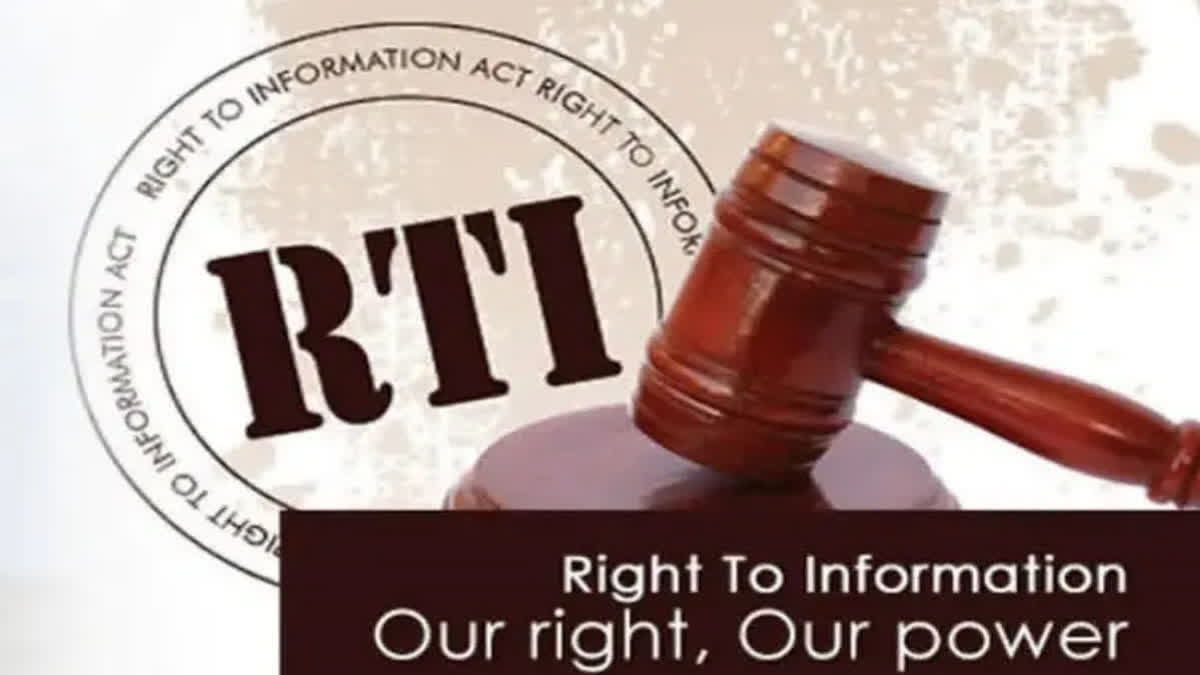New Delhi: The Supreme Court has said that power and accountability go hand-in-hand and public accountability is a crucial feature that governs the relationship between ‘duty bearers’ and ‘right holders’. The top court directed the Central Information Commission (CIC) and the State Information Commissions (SIC) to ensure proper implementation of Section of the Right to Information Act.
A bench headed by Chief Justice DY Chandrachud and comprising justices PS Narasimha and JB Pardiwala said, “The Right to Information established by the statute under Section 3 in the context of the obligations of public authorities under Section 4, we are of the opinion that the purpose and object of the statute will be accomplished only if the principle of accountability governs the relationship between ‘right holders’ and ‘duty bearers’."
The bench said the circle of representative democracy connects the supremacy of Parliament with the rights of the citizen by ensuring that the state performs its obligations. Justice Narasimha, who authored the judgment on behalf of the bench, said the Central and State Information Commissions have a prominent place, having a statutory recognition under Chapters III and IV of the Right to Information Act, 2005 and their powers and functions all enumerated in detail in Section 18 of the Act.
Justice Narasimha said, “We have also noted the special power of ‘monitoring and reporting’ conferred on the Central and State Information Commissioners, which must be exercised keeping in mind the purpose and object of the Act, i.e., ‘to promote transparency and accountability in the working of every public authority'."
Also read: SC: Political parties have a point, they apprehend RTI may be used for internal decisions
The top court noted that power and accountability go hand in hand. “While declaring that all citizens shall have the ‘right to information’ under Section 3 of the Act, the co-relative ‘duty’ in the form of the obligation of public authorities is recognised in Section 4. The core of the right created under Section 3 in reality rests on the duty to perform statutory obligations. Public accountability is a crucial feature that governs the relationship between ‘duty bearers’ and ‘right holders'," said Justice Narasimha.
The bench said Section 25 of the Act, gloriously integrates ‘the right to information’ of a citizen with the collective responsibility of the government to the legislature under Article 75(3) or 164(2) of the Constitution. “At the beginning of the chain is the citizen exercising his or her right to information. The Public Authority obligated to provide the information is accountable to the department. The department, shall, in relation to the public authorities within their jurisdiction, collect and provide such information to the CIC or SIC (see Section 25(2))”, said the bench.
The written submission filed on behalf of the petitioner disclosed that only 33% of the public authorities have got transparency audits conducted in the last four years. The petitioner further averred that apart from the poor implementation of third-party audit, 33% of public authorities which had their transparency audits conducted performed badly, clearly evidences that the quality and quantity of proactive disclosure were not in accordance with Section 4 of the Act. 19.
“From the information made available to us, one thing is evident. The system needs the authority concerned complete attention, followed by strict and continuous monitoring. It is in this context that the functioning and duties of the Central and State Information Commissions assume utmost importance," noted the bench.
The top court said, “We direct that the Central Information Commission and the State Information Commissions shall continuously monitor the implementation of the mandate of Section 4 of the Act as also prescribed by the Department of Personnel and Training in its guidelines and memorandums issued from time to time."
The top court judgment came on a PIL filed by Kishan Chand Jain seeking a direction to implement the mandate of Section 4 of the Right to Information Act, 2005. The statutory obligations of public authorities under Section 4(1) relate to (a) maintenance of all public records, duly catalogued and indexed for easy accessibility of the information; (b) publishing particulars of the organisational structure, functions and duties of officers, procedures that are followed for decision-making, salary structure, budget allocation, publication of facts relating to policies and announcements, which includes providing reasons for quasijudicial decisions. Sub-section (2) mandates the public authority to take steps for providing information under clause (b) of sub-section (1) suo motu and further disseminate the said information for easy accessibility to the public.



